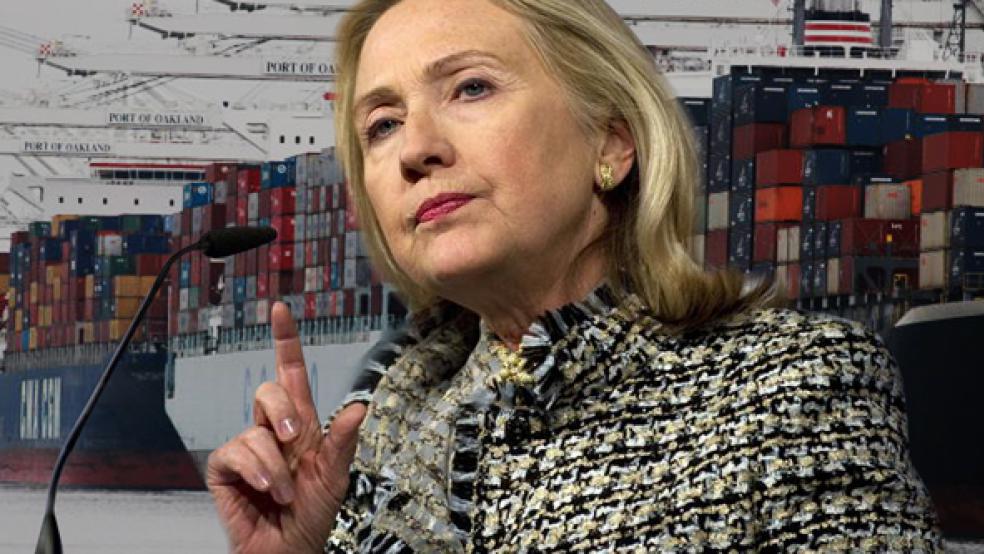The State Department may become the nation's human resources department by add job creation to its already bulging portfolio.
Secretary of State Hillary Clinton invited U.S. companies to call on Foggy Bottom experts for guidance on increasing their exports, safeguarding intellectual property abroad, and increasing foreign direct investment in the U.S. as part of a new administration effort to promote domestic jobs.
Speaking on Tuesday before more than 200 major U.S. executives operating in more than 120 countries, Clinton laid out the State Department’s plans to through a concept Clinton coined “Jobs Diplomacy.” Under this approach, U.S. diplomats will take a more active role in looking out for U.S. business interests abroad, making a stronger effort to share their knowledge of foreign markets with U.S. multinationals.
‘‘American companies haven’t always seen the federal government as an ally, and I know the State Department hasn’t always been the first call when they’re looking for help,” Clinton said at a Tuesday conference in Washington. “We can and will do better.” To help lead the effort, Clinton named Heidi Crebo-Rediker to be the State Department’s first ever chief economist.
Although it’s unclear what the exact structure of the State Department-private sector relationship will be, the concept could potentially be a boon to the U.S. economy, said Ted Alden, a senior fellow at the Council on Foreign Relations. “You’ve got in the embassies abroad what really amounts to market intelligence—people on the ground who are familiar with the business environments in the countries in which they are working and companies are looking to break into,” he said.
The State Department’s ramped up focus on economics is also a matter of defending the State Department’s ulimate foreign policy goals. “Fast growth is all in the emerging markets, and if we don’t find a way to get in that game, it’s going to damage the U.S. economically which will make it far harder for the United States to be effective in the foreign policy realm,” Alden said.
The latest effort is the first major action resulting from an October speech Clinton delivered at an Economic Club of New York event calling to place domestic economic concerns higher on the U.S. foreign policy agenda.
The initiative casts Clinton into a possibly favorable limelight should she wage a campaign to succeed retiring World Bank President Robert Zoellick, who announced he would step down in June. Although Clinton has not publicly said she wants the position, political and economic experts speculate that she may pursue the opportunity once she steps down as Secretary of State at the end of Obama’s current term.





